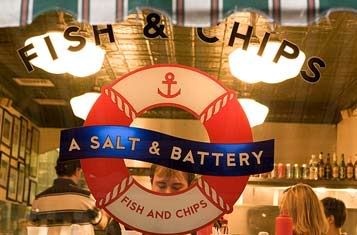It's a first-person shooter puzzle game, a lot like Portal. However, instead of portals, you use paint to get around levels. There are three paint colours: green, red, and blue. Green makes you jump, red makes you move faster, and blue lets you stick to surfaces.
You are given a paint gun that lets you colour the walls and floors, and the game makes you use the three colours in concert to solve the puzzles. It's not a very long game, nor does it have mind-blowing graphics, but I found it tremendously entertaining. Except maybe for those parts where you have to crawl on ceilings to get places. I felt a bit ill after that.
Given that it is a project made by game design students, I don't think that it's going to be spruced up and released into the market anytime soon. Although if they did decide to commercialise this, those guys are going to be rich.
I wonder if I can buy Portal, separate from the rest of The Orange Box.
Q: What what's red and smells like blue paint?
A: Red paint.
Recently, I've been reading up on homeopathy. Homeopathy is the practice of heavily diluting a substance believed to have curative effects, and having the effects still present in the solvent(usually water or alcohol). It is also based on the "like cures like" principle, where the substance that causes ill effects can be made to cure them when diluted properly.
Apparently, heavily diluting snake venom makes a snakebite cure.
Homeopathy is not to be confused with herbal remedies, like... well, herbs.
What astonishes me is the number of people who believe in and subscribe to homeopathic therapies. According to practitioners, the "active" ingredient somehow "imprints" itself onto water, such that the water is altered even when the amount of ingredient remaining is effectively zero. This simply makes no sense. For one, the relation between dosage and effect as demonstrated by regular medical practice is entirely thrown out of the window here.
Secondly, water molecules can't have their "vibration states"(this is what they call it, seriously) possibly altered by such minute concentrations of solute, and no amount of manual shaking and stirring is going to do anything special.
Besides, the entire principle of homeopathy seems to overlook something: Water molecules are fungible. In every glass of water you drink, there is a strong likelihood that at least one of the molecules in there has passed through the gut of Benjamin Franklin. Almost all of the water that you drink has at one point been in the ocean, inside organisms, in sewage systems, in the air... If water really retained any sort of property simply by being in contact with another substance, then every drop of tap water is a homeopathic remedy to everything.
Also, how do you pronounce "fungible"? What sound does the G make?

-Joe


